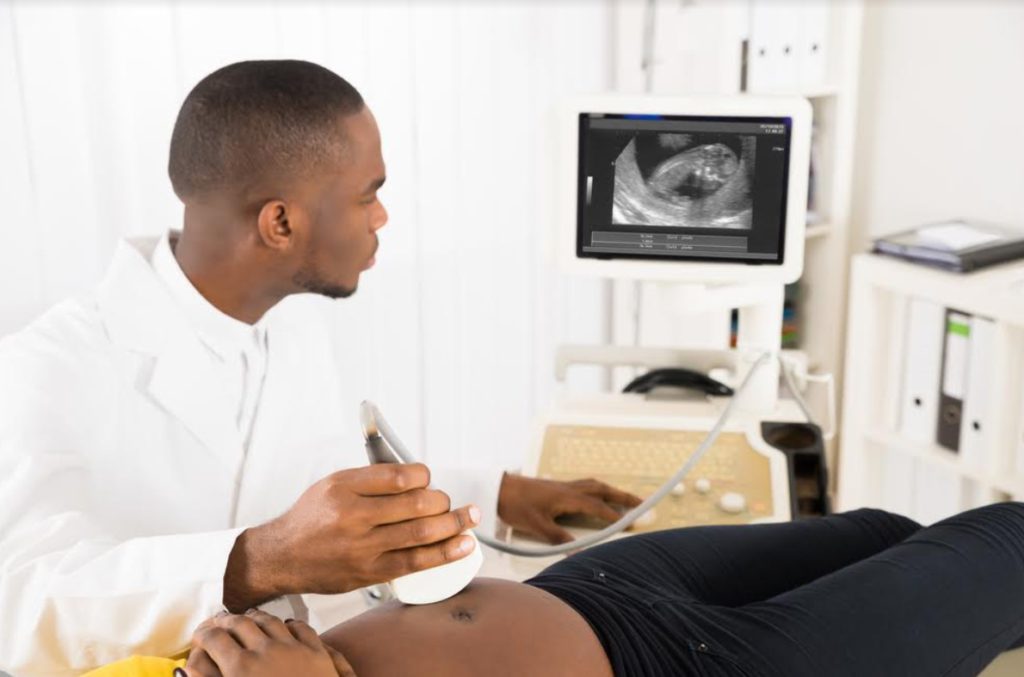A threatened miscarriage is also referred to as a threatened abortion or a threatened spontaneous abortion. Abortion is sometimes used as a medical term for a miscarriage. Abortion occurs when a pregnancy ends before the embryo is ready to survive on its own. It could be a threatened miscarriage, an early pregnancy loss, or a spontaneous abortion.
In this post, you will learn all there is to know about threatened miscarriage; the causes, possible complications, symptoms, and diagnosis.
Let’s Get Started!
What Is Threatened Miscarriage?
The World Health Organization (WHO) defines threatened abortion as a pregnancy-related bloody vaginal discharge or frank bleeding during the first half of pregnancy without cervical dilatation.
During the first trimester of pregnancy, some pregnant women experience vaginal bleeding. This blood loss can occur with or without abdominal cramping. A threatened abortion occurs when the symptoms show that a miscarriage is likely to happen in the future.

Causes of threatened miscarriage
Some of the possible causes of threatened miscarriage are:
- An infection or irritation that may occur following sex.
- Miscarriage, minor falls, injuries, or stress during the first trimester of pregnancy.
- Ectopic pregnancy; is a condition that arises when an embryo implants outside of the uterus.
- Molar pregnancy; is a rare uterine growth.
Other factors that can raise your chances of miscarriage include:
- Obesity
- Thyroid problems
- High blood pressure
- Diabetes
Symptoms of Threatened Miscarriage
The main symptom is vaginal bleeding in the first 20 weeks of pregnancy. It is also important to note that the intensity of this bleeding can vary from light to severe. Furthermore, some people also experience stomach cramps or lower back pain.
Women who have a regular miscarriage frequently experience dull or sharp pain in the abdomen and lower back. They may also pass vaginal tissue containing clot-like material.
If you’re pregnant and experiencing these symptoms or bleeding at any point during pregnancy, contact your doctor or obstetrician immediately.
Possible complications include:
- Anemia
- Infection
- Miscarriage
Furthermore, the doctor will want to make sure the symptoms or complications aren’t caused by an ectopic pregnancy, which is a potentially lethal complication. To achieve this, it is important to make a proper diagnosis.
Diagnosis of Threatened Miscarriage
To properly diagnose a threatened miscarriage, the doctor will inquire about your symptoms and medical history. Furthermore, he or she will have to perform a physical examination.

Some of the tests involved include:
- Fetal heart monitoring via ultrasound
- Tests on the blood; The following blood tests are done:
- Beta HCG (quantitative) test (pregnancy test) performed over a period of days or weeks to confirm the continuation of the pregnancy
- A complete blood count (CBC) is performed to determine the presence of anemia.
- Progesterone concentration
- A white blood cell count (WBC) with a differential is done to rule out infection.
Treatment of Threatened Miscarriage
Miscarriages are sometimes unavoidable. In some cases, your doctor will recommend certain measures to reduce your chances of miscarriage.
Some of these preventive measures include:
- Treating conditions that increase the risk of pregnancy complications, such as gestational diabetes or hypothyroidism.
- Your doctor may also prescribe a progesterone injection to boost your hormone levels.
- If you have Rh-negative blood and your developing fetus has Rh-positive blood, your doctor will also give you Rh immunoglobulin, also known as immune globulin. This prevents your body from producing antibodies against the blood of your child.
Prevention of Threatened Miscarriage:
Although it is really difficult to prevent miscarriage during pregnancy, you can increase your chances of having a healthy pregnancy by:
- Attending your antenatal clinics regularly
- Avoiding alcohol
- Regulating your caffeine consumption
- Taking prescribed prenatal vitamins
- Reporting any viral or bacterial infections during pregnancy to your doctor immediately
Long-term prospects
Thankfully, many women who experience threatened miscarriages go on to have healthy children. If your cervix hasn’t already dilated and the fetus is still securely attached to the uterine wall, this is more likely. If your hormone levels are abnormal, hormone therapy can often help you carry the baby to term.

Nonetheless, a threatened abortion can be a very stressful experience for some people, leading to anxiety and depression. If you are experiencing symptoms of either condition following a threatened abortion or miscarriage, you should consult your doctor. They can assist you in obtaining the necessary treatment.
Your doctor may also be aware of local support groups where you can share your experiences and concerns with others who understand what you’re going through.
In Conclusion,
It helps to remember that most miscarriages are often unavoidable. However, if you have two or more miscarriages in a row, please contact your doctor to identify and treat the underlying cause. In addition, studies show that women with proper prenatal care often have better pregnancy outcomes and fewer cases of threatened miscarriage.

